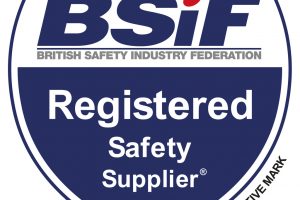There is a better way
David Lummis discusses the BSIF’s latest collaboration with the Environment Agency
(EA) on the problem of spills and how best to prevent and contain them in the
construction and waste management industries
David Lummis discusses the BSIF’s latest collaboration with the Environment Agency
(EA) on the problem of spills and how best to prevent and contain them in the
construction and waste management industries
In late 2012 the BSIF and EA
commissioned two reports on
spills prevention and containment
in the construction and waste
management industries. The primary
reason for focusing on these industries
was because statistics from the EA
indicated high incident levels of spill
pollution in construction and waste
management.
The main objectives of the reports were
to: Identify the key spill prevention
issues in the industries, and understand
and identify ways to overcome barriers
to best practice in order to help reduce
spill risks. Both reports are available to
download for free on www.bsif.co.uk
and www.environment-agency.gov.uk.
This month’s HSM Environmental
Control Handbook also features an
article on the report.
Best practice in spill prevention in the waste
management industry To get an insider view on the problem, the BSIF and EA
commissioned a research project that involved waste
management industry figures openly discussing their experiences
of spills. Overall, 23 industry figures participated in this exercise
either via individual interviews or via one of the three focus
groups. The participants all fell into one of two categories: the
majority (20) worked for a waste management organisation and
three worked for companies that supply spill containment
products or services.
The report gives an insight into the most common spills faced
by waste companies on and off site. The most common spills
mentioned included spills as a result of moving oil and diesel,
leachate, chemical spills and fire water run-off. Another relatively
common cause of spills is the breaking of hydraulic hoses on
lorries. This often happens away from site and can lead to a spill
of up to 100 litres of hydraulic fluid. Several participants pointed
out that they have limited control where spills can occur for
example when waste is delivered in unsafe and unsuitable
containers and when there is vandalism on site. However the
company remains liable for these incidents and appropriate
measures should be taken to prevent them.
The report details how the company
handles spills and outlines the barriers
for not following best practice and how
these can be overcome. The report also
outlines what makes for best practice
and how by applying simple steps spills
can be prevented and contained better.
Construction spill prevention
matters This report examined the challenges
faced in preventing spills,
environmental hazards and the cost
implications of such issues occurring in
the construction industry. The report is
written in collaboration with, and
features interviews and discussion
pieces from, national regulators and
experts from the largest construction
businesses in the UK including: The
chairman of the Environment Agency,
the global sustainability director at WSP,
Vinci Construction UK, Costain,
Willmott Dixon and many more.
Key topics covered in the report include:
An outline on guidelines, support and future actions to
encourage environmental management within the UK
construction sector from the EA
Identifying common spill threats and the cost of remedy
Whether there is such a thing as a ‘low level hazard’ or should,
and can, all hazards be treated as ‘high priority’?
Contractor or Developer: Whose responsibility is spill
prevention and how should the hazard avoidance tasks be
shared?
Developing a spill training plan: knowing the basics to put in
place
How to ensure the appropriate disposal of hazard waste and
liquids both during and post construction phase
Building a spill prevention kit for your specific needs: tips
from the experts
Not surprisingly, both the reports have identified that applying
best practice is not only good business sense but it also supports best
environmental practice too. Spills cause damage and cost money.
It is in everyone’s interest to prevent spills and where necessary
contain them safely. Both the BSIF and the EA want to encourage
companies to adopt best practice to reduce the spill incident rate,
the severity of pollution and the wasted cost to the respective
industries.
BSIF members have extensive experience in these markets and
can offer support and advice to help both industry sectors to, at
best, prevent spills and at least,
contain them better.
HSM publishes a weekly eNewsletter, delivering a carefully chosen selection of the latest stories straight to your inbox.
Subscribe here





